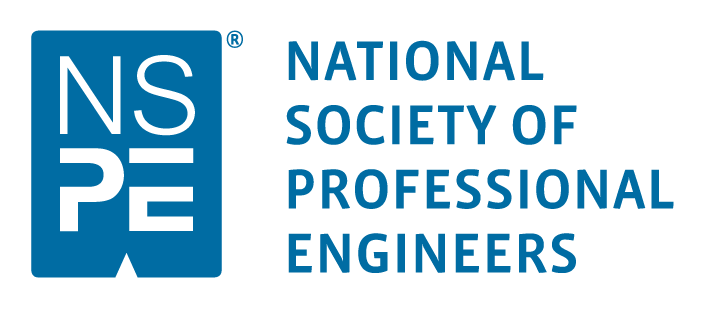Is it Time for a New Reserve Study?
Homeowner Associations in New Jersey are responsible for protecting, maintaining, and enhancing the major common areas in a financially sound and efficient manner. By conducting a reserve study, HOAs will have enough funds to support the common areas’ functionality and safety and ensure the highest possible resale value of the properties.
However, to be effective, a reserve study must be evaluated, updated, or renewed when deemed necessary. Otherwise, an outdated reserve study can lead to special assessments, or worse, claims of mismanagement. The association will also miss the benefit of new technologies or money-saving opportunities that may not have been available to them when the previous reserve study was conducted.
When to Get a New Reserve Study?
Condominium buildings, clubhouses, and townhomes require roofs, paint, floors, and other ongoing repairs. Amenities such as swimming pools, basketball courts, and parks require regular maintenance. As these assets age, they will require major capital expenditures. If the association doesn’t have a reserve study and account, the best time to get and fund one is today.
The frequency with which an association must conduct a reserve study might be specified in a state’s legislation governing homeowner associations. New Jersey has not adopted any specific laws related to reserve studies, but the standard industry practice is to perform it periodically, at least every three years, as a display of prudent business practice.
It is also recommended to have the reserve study updated regularly to avoid an increase in special assessments. Special assessments happen when a repair or replacement of a shared asset must occur as soon as possible, yet the available funds are insufficient to cover the expense of the project. Such a situation often means that the project must be scrapped, or a special assessment fee must be collected from association members to fund the project.
Often, homeowners don’t appreciate it when special assessments happen. An adequate reserve fund can be established by conducting a detailed and complete reserve study, and, as a result, special assessments are less likely to occur.
Full Reserve Study Vs. Reserve Study Update
It’s also crucial for HOAs to know if they need to have a full reserve study or update their existing one.
A full reserve study is for associations that are having their first reserve study performed or for associations that are not confident with their previous case study. The scope of this study includes the inspection of the community properties and all accessible reserve components.
The concept of a reserve study update, on the other hand, is that the association will hire their original reserve study professional to update their reserve fund study report. Depending on the provider and the association’s needs, a reserve study update can be conducted with or without a site inspection.
Often, associations that would like to update their reserve study annually opt for a reserve study update without site inspection. This project does not involve any site inspection, although it considers factors such as balance changes, inflation, and regulatory requirements that might affect the reserve fund.
A reserve study with inspection is often conducted for associations that would like to update their reserve study after three or five years. In this type of study, the hired professional will verify all the components and use the quantities and measurements from the previous case study. This study helps ensure accurate reporting of the wear and tear of the association’s amenities and ensure that nothing was missed during the full reserve study.
Despite the possibility of conducting an update without inspection, many reserve study providers, such Lockatong Engineering, will still perform a site inspection as a necessary step for the project. This is to get a visual confirmation of the current conditions of the shared assets and to provide the association with the most accurate and up-to-date information about the shared assets.
Keep in mind that when updating a reserve study with a site inspection, the report should include the following elements:
- Physical Analysis of Shared Components
- Assessments on the condition and life expectancy of the assets.
- Analysis of site conditions that may affect the useful life (UL) of the components.
- Estimates on the remaining UL of the assets or the need for significant repair or replacement.
- Financial Analysis
- Cost estimates for major repair or replacement.
- Evaluation of the HOA’s reserve balance.
- 30-year funding plan to show how to fund the reserve adequately and on time.
Lastly, it is essential to hire a NJ reserve study expert who follows the National Reserve Study Standards. in order to meet the industry standards and ensure that it will pass an audit. Furthermore, a NJ reserve study expert with extensive knowledge and experience in engineering inspection will be able to draw a more accurate estimate of the useful lives and costs of any structural elements that may require repair or replacement in the future.
Conclusion
Common assets can provide the whole community with a safe and healthy space to live when properly maintained. However, it takes adequate funding to preserve assets, perform repairs, and replace outdated components. Fortunately, thorough and accurate reserve studies conducted by a professional should enable the HOA to plan accordingly and prepare enough funding for major expenditures down the road.
Lockatong Engineering understands and complies with National Reserve Study Standards and state best practices for conducting reserve studies.
Our experience conducting reserve studies for many entities also means we’re sensitive to the conflicts that may arise in homeowner associations: We’ve worked well with owners, boards, and managers to deliver results for the organization.
Click here today to learn more on how to ensure a complete and sound New Jersey reserve study.








